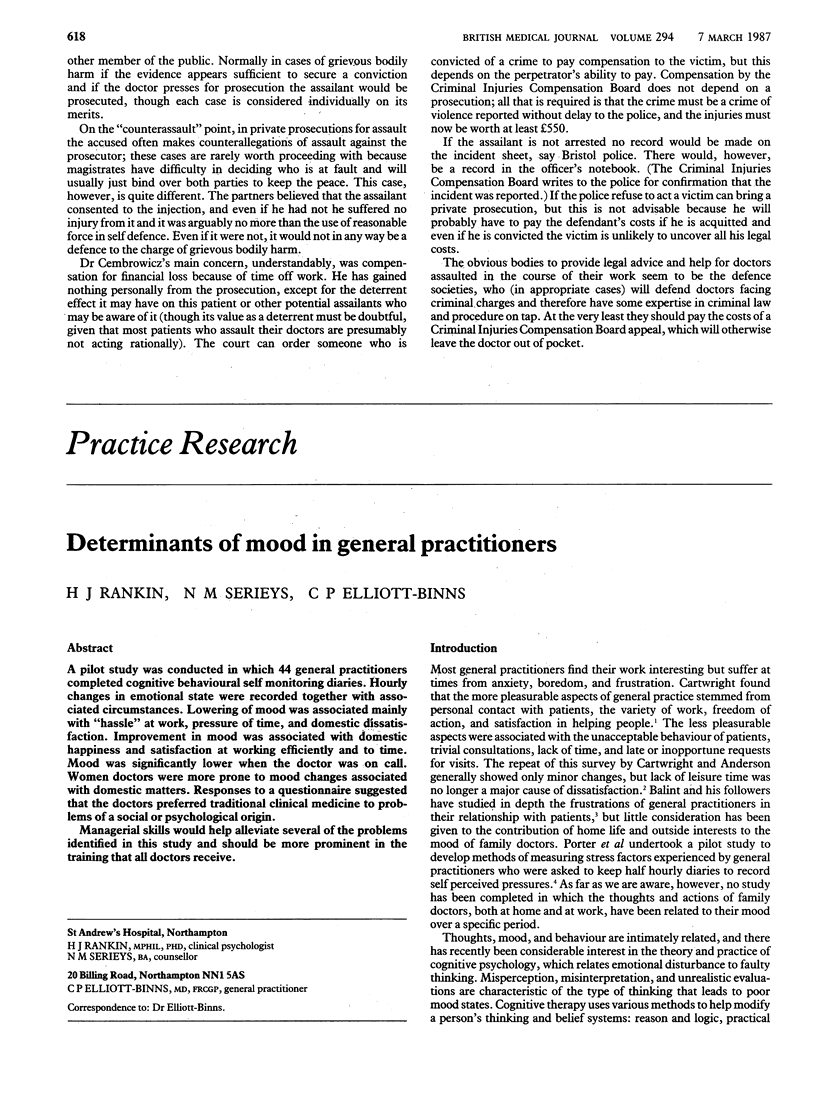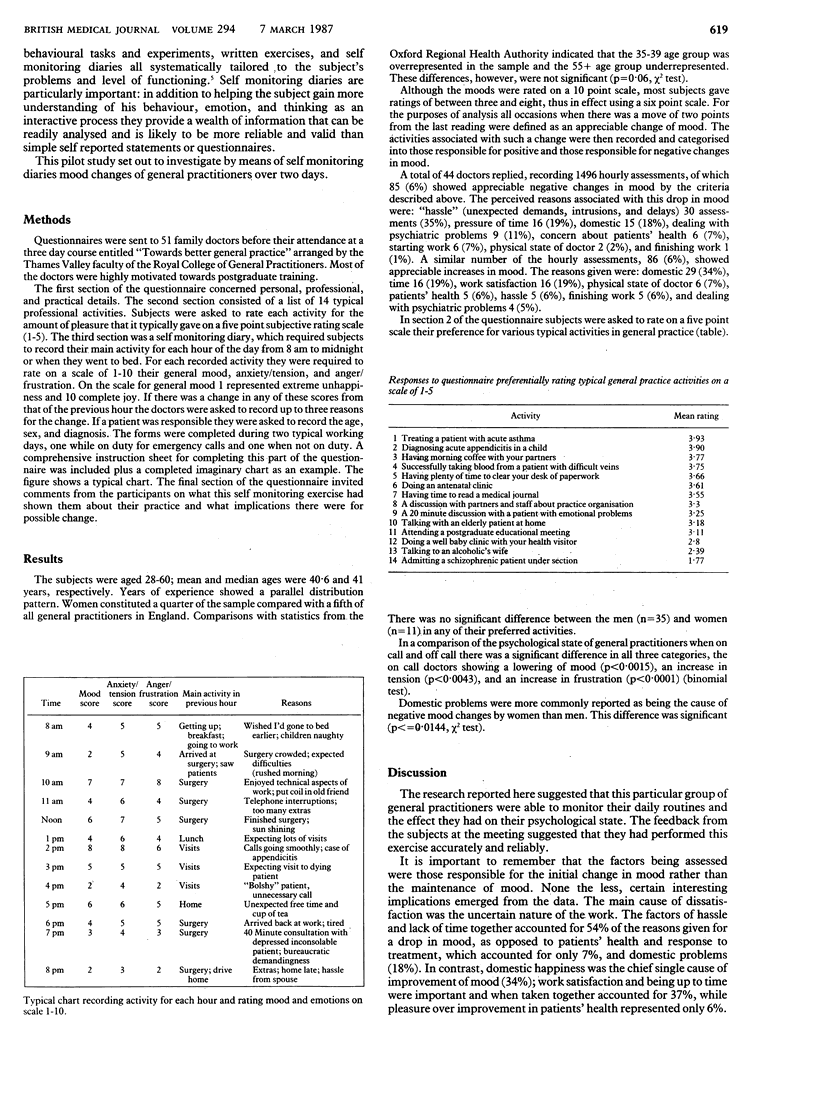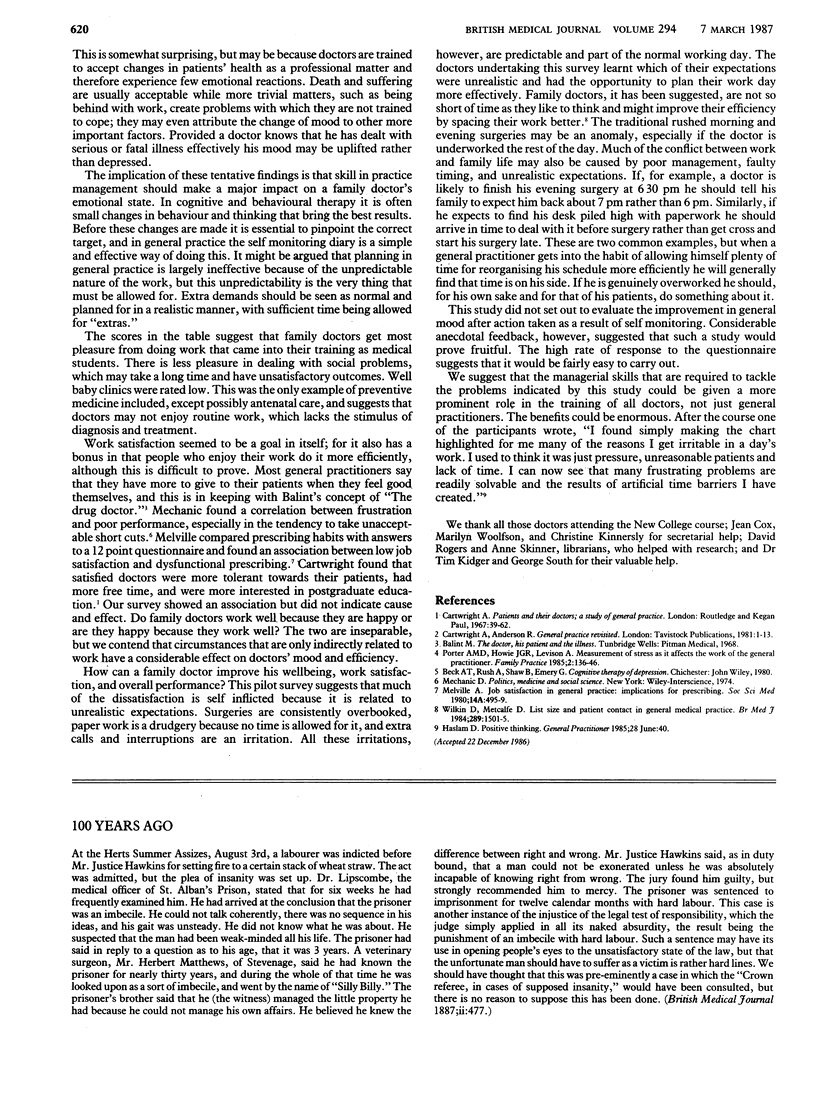Abstract
A pilot study was conducted in which 44 general practitioners completed cognitive behavioural self monitoring diaries. Hourly changes in emotional state were recorded together with associated circumstances. Lowering of mood was associated mainly with "hassle" at work, pressure of time, and domestic dissatisfaction. Improvement in mood was associated with domestic happiness and satisfaction at working efficiently and to time. Mood was significantly lower when the doctor was on call. Women doctors were more prone to mood changes associated with domestic matters. Responses to a questionnaire suggested that the doctors preferred traditional clinical medicine to problems of a social or psychological origin. Managerial skills would help alleviate several of the problems identified in this study and should be more prominent in the training that all doctors receive.
Full text
PDF


Selected References
These references are in PubMed. This may not be the complete list of references from this article.
- Melville A. Job satisfaction in general practice: implications for prescribing. Soc Sci Med Med Psychol Med Sociol. 1980 Dec;14A(6):495–499. doi: 10.1016/0160-7979(80)90050-8. [DOI] [PubMed] [Google Scholar]
- Porter A. M., Howie J. G., Levinson A. Measurement of stress as it affects the work of the general practitioner. Fam Pract. 1985 Sep;2(3):136–146. doi: 10.1093/fampra/2.3.136. [DOI] [PubMed] [Google Scholar]
- Wilkin D., Metcalfe D. H. List size and patient contact in general medical practice. Br Med J (Clin Res Ed) 1984 Dec 1;289(6457):1501–1505. doi: 10.1136/bmj.289.6457.1501. [DOI] [PMC free article] [PubMed] [Google Scholar]


